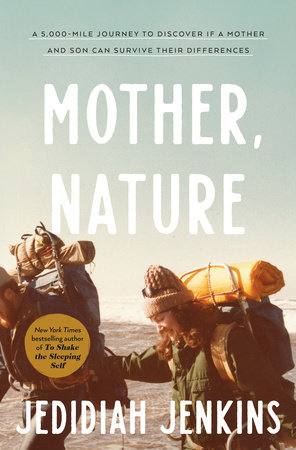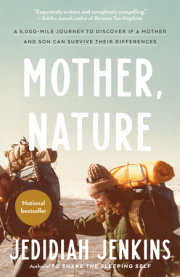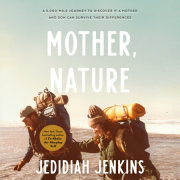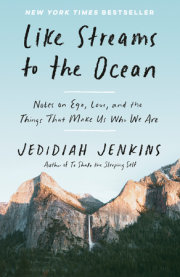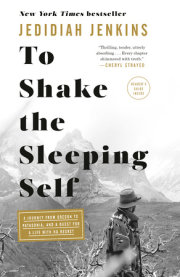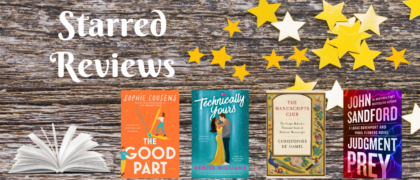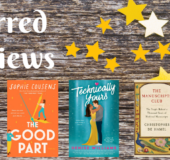Chapter 1Let me begin with a parable. It comes from India. “The Blind Monks and the Elephant.” It goes like this:
There is a group of blind monks living on the edge of town. They have lived in their monastery for many years, passing the time in peace and prayer. Until one day, when a strange new animal is brought to the village. It is called an “elephant.” Word of its arrival spreads to every house, and crowds form in the town square, day and night. The monks decide that they want to go experience this creature. They’ve never heard of such a thing, and they want to touch it. They hurry to the town square, where they hear the murmurs of a large crowd and a new sound, the grumble of an animal that must be very large. They make their way through the townspeople and now the monster’s groans are very close.
The first monk walks up and touches the left tusk, amazed at its size. Another feels the trunk, running his hands along the powerful snaking appendage. Another gently traces his fingers around the giant flapping ear. Another its leg. There are many people surrounding the elephant, touching it where they can. Before long, the monks’ time is up. There is a line, of course, and a short man in uniform sends them on their way.
The monks walk home stupefied, filled with the wonder of something bigger than their imagination. They are laughing and holding hands. They are electrified, talking fast and over each other. “What a wonder! A giant made entirely of bone!” “Bone? No, it was a leathery winged creature.” “What are the two of you saying? It was a ten-foot-tall hairy snake!” To each monk’s dismay, none of their stories align. “I know that it was bone, I touched it, and how can you say otherwise?” Something about the arguing makes the men double down on their memories, certain not only of their picture of the elephant, but that the others must be delusional. First they raise their voices, then they are shouting. “You’re a liar!” “How dare you call me a liar!” And then fists are swinging.
In many versions of the story, the community of monks falls apart and they go their separate ways.
On January 1, 2003, I flipped my car. I was home from college, driving to my friend Adam’s house on the morning of New Year’s Day. You may guess that I was hungover. I was not. I was a good Christian boy who thought drinking was for losers. But I had stayed up late, drinking Martinelli’s sparkling cider and playing Catch Phrase with my Christian friends.
When I left my mom’s house, it was perhaps 10 a.m., and it had just begun to rain. I heard somewhere that the road is slickest just as the rain begins, because the water lifts the accumulated soot and dirt off the asphalt, making it slippery. I was driving my mom’s extra car, a Ford Explorer from the early nineties. The seat belts didn’t latch. The tires were bald, as smooth as marble. But I didn’t think about any of that. I was young, and I got in the car with no seat belts and bald tires because I wanted to hang out with my friends and play Nintendo 64. The drive was only a few miles, but it snaked through the hills south of Nashville. S-curved rivers of pavement connecting neighborhoods hidden in maple, buckeye, and oak.
That morning, I was playing Tori Amos’s “A Sorta Fairytale” loud and full in the doomed car. I remember being thrilled when she sang about driving “up on the 101,” as I finally knew what that was, going to college in Los Angeles.
On Granny White Pike, while navigating a curve that is now forever burned into my limbic system, I felt my car detach from the normal rules of physics. My stomach knew before my mind. I was floating, disconnected from the road, and rotating. Adrenaline tingled across my rib cage. The car spun counterclockwise, turning perpendicular to the lane I’d been driving in, at which point the tires found just enough purchase to launch the vehicle off the road.
On both sides of the road were steep, upward sloping hills. My car jammed itself up the incline, crunching bushes like paper lanterns, and then barrel-rolled back down into the ditch. Remember, my seat belt didn’t buckle, so as the vehicle began rolling, I was ripped from the driver’s seat, my legs dragging across the gearshift like noodles. My head slammed into the passenger window, breaking it, then the car rolled again and I was flung to the driver’s seat, breaking that window too. I remember the airbag coming out of the glove compartment very slowly, white powder everywhere as if a balloon of flour had popped. Then the car came to a stop in the muddy ditch, passenger window to the ground, and me somehow back on that side, crumpled like spilled spaghetti and my head in the mud.
In the strange new stillness, Tori Amos was singing. “I’m so sad, like a good book I can’t put this day back, it’s a sorta fairytale . . .” I would’ve expected her voice to be crackly or distorted, like in a movie crash scene, but she sounded perfect. A win for Ford’s stereo department. With my body scrunched in the passenger seat, my mind came back online.
Wow. I think I’m OK. Am I in shock? I feel fine. Get up. I pushed a hand into the mud, folded my legs underneath me, and contorted myself upright. As I stood all the way up and popped my head out the driver’s side window, I heard a man’s voice yelling. “Don’t move! Stay there!” He was walking my way from a station wagon with a woman and three kids inside.
“I’m fine, I feel fine,” I said.
“OK, well, lie down!” he said as he reached me. As I finished crawling out the driver’s window, I caught myself in the side-view mirror. I had blood all over my face. I guess enough adrenaline was running through me that I didn’t feel shock at the sight of it. Just disconnected curiosity. I put my hand to my jaw and it felt fine, but then I touched my scalp and felt a hundred little bits of glass. When a windshield shatters, it’s designed to break into tiny pieces so the shards don’t stab us dead. The glass had made its home in my scalp, sending blood down my face like a
Carrie reference. I remember thinking,
No wonder this man is worried about me, I’m a horror movie. I assured him I was fine, and then I heard the sirens.
That was fast, I thought. It may not have been fast, I’m not sure. Danger collapses time into soup. The man and the station wagon disappear from my memory here.
I was surprised when a fire truck showed up. Why not an ambulance? But four or five firemen jumped out and ran over to me. They instructed me to lie on my back.
“I’m fine,” I said.
“OK, let me check you,” one of them said. I remember thinking he was tall and his arms were big, the muscles filling his sleeve to remove all creases. He took my foot and began squeezing me, every few inches, to see if I’d wince or if he could find a broken something. Even in my shock, I noticed how good it felt for this man to touch me. This little massage. Then I thought how pathetic it was to be thinking that, covered in blood next to a flipped, broken car.
“Am I Wolverine? Am I invincible?” I joked as the firefighter felt my neck and head.
“You must be,” he said. He wasn’t tender, just thorough. Which felt very masculine. Which made it more attractive.
Just then my friend Kyle’s face appeared over me like a terrorstruck angel. I hadn’t realized we were sitting right in front of his house. Kyle had been driving home when he saw the overturned car, a car he knew to be mine. No one had ever looked at me with such horror and desperation, and I thought how nice it was that he cared that much about me.
“Everything looks fine,” the firefighter said. “Do you have someone you can call to come pick you up?”
Kyle grabbed my shoulder. “How can I help? Do you want me to take you home?”
“Oh I’m OK,” I said. “I’ll just call my mom, she’ll come get me. She’ll love saving the day.” Kyle handed me his phone. It was hard to see the numbers. My vision was blurry. I dialed slowly. While the phone rang, I prepared myself to sound normal. I looked around at the scene, the Explorer on its side, the huge fire truck. I thought,
Who called for this fire truck? “Hi, honey,” she said, chipper and surprised that I’d called.
“Mom, everything’s OK, but—” Something shut off my words. That horrible effect of trying to speak with tears flooding your eyes. I floated above myself, embarrassed.
You’re fine. What are you losing it for? You’re twenty-two years old. “Mom, I got in an accident,” I said, my voice squeezed into the highest falsetto. “Can you come get me? I’m right by Kyle’s house.”
“Oh honey, I’m getting in the car. Be right there.” Her voice was sturdy and ready to problem-solve.
Copyright © 2023 by Jedidiah Jenkins. All rights reserved. No part of this excerpt may be reproduced or reprinted without permission in writing from the publisher.

